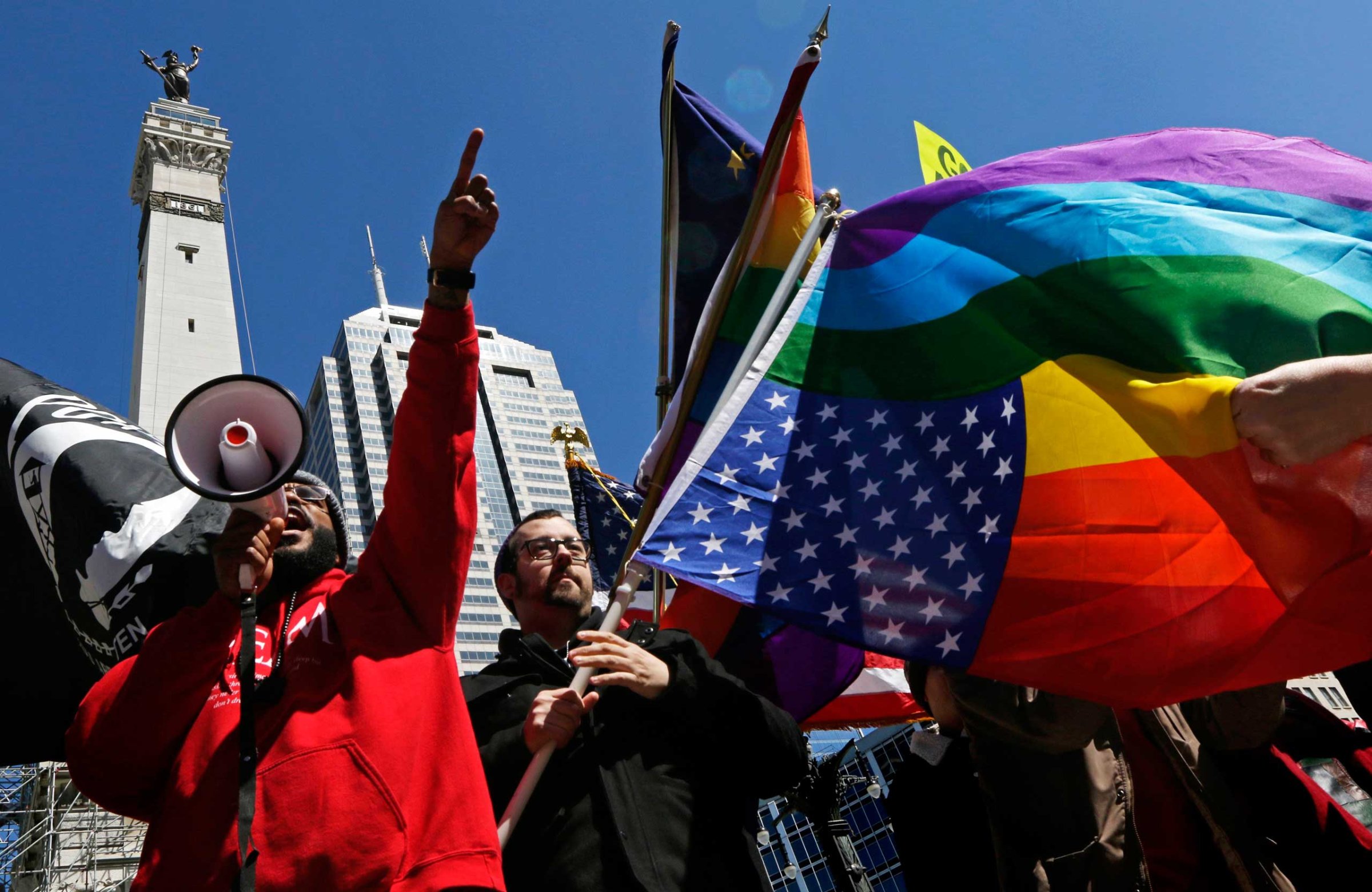
A controversial Indiana law signed by Gov. Mike Pence last week has brought nationwide scrutiny to the Midwestern state — but what’s it all about?
The so-called “religious objections” law has sparked high-profile allegations that it opens the door to legal discrimination against gay people. Meanwhile, Gov. Pence has stood by his position, arguing on Sunday that the law “is not about discrimination.” Here’s a guide to the law, and the controversy:
So what exactly is this law?
The legislation, officially termed the Religious Freedom Restoration Act (SEA 101), prohibits any state law that would “substantially burden” a person’s ability to follow his or her religious beliefs. It was signed by Gov. Pence in a private ceremony on Thursday, as he explained, “to ensure religious liberty is fully protected under [Indiana] law.” Scheduled to take effect in July, the law boils down to the following clause (full text available here):
A [state] governmental entity may not substantially burden a person’s [defined as an individual, business, religious institution or association] exercise of religion, even if the burden results from a rule of general applicability.
While the law’s full text defines “substantially burden,” in practice the law remains vague and up to the courts’ interpretation. Gov. Pence has denied accusations that the law is discriminatory, though he has dodged questions concerning whether the law would permit such a scenario.
MORE: 5 Things to Know About Mike Pence
Why is it considered discriminatory?
Critics argue it would theoretically allow businesses such as hotels or restaurants to deny service to gay customers due to their moral or religious convictions. When a Colorado bakery refused to make a wedding cake for a gay couple and a New Mexico photographer refused to take photos of a lesbian couple’s commitment ceremony, state governments sided against the businesses. That has prompted some lawmakers, including in Indiana, to push for legal support for religious objections.
Others have warned that the bill could permit discrimination more broadly, on religious grounds. The Human Rights Campaign argued in a report last year that bills like that passed in Indiana could empower any individual to sue the government to attempt to end enforcement of a non-discrimination law:
The evangelical owner of a business providing a secular service can sue claiming that their personal faith empowers them to refuse to hire Jews, divorcees, or LGBT people. A landlord could claim the right to refuse to rent an apartment to a Muslim or a transgender person.
Who has criticized the bill?
A broad coalition of people from Democrats and liberal groups, to some high-profile businesses and organizations have criticized the bill. On Monday, Democratic Connecticut Gov. Dan Malloy announced on Twitter that he will sign an executive order barring state-funded travel to Indiana, making Connecticut the first state to boycott Indiana over its new law. “We are sending a message that discrimination won’t be tolerated,” Gov. Malloy tweeted. Seattle Mayor Ed Murray, the city’s openly gay chief executive, also signed an executive order on Monday in response to Indiana’s law, barring city-funded travel to the Midwestern state.
The NCAA, which is headquartered in Indianapolis, has expressed concern over Indiana’s law as it prepares to host the Final Four next week in the Colts’ Lucas Oil Stadium. NCAA President Mark Emmert said in a statement last week, “we intend to closely examine the implications of this bill and how it might affect future events as well as our workforce.”
On Monday, the professional football world broke its silence on Indiana’s law when Indianapolis Colts CEO Jim Irsay appearing to address Indiana’s law on Twitter. “The Colts have always embraced inclusiveness, tolerance, and a diverse fan base,” Irsay tweeted. “We welcome ALL fans to Colts Nation. ONE FAMILY!” The NFL, however, has remained silent on the issue as the league is “in the process of studying the law and its implications,” a spokesman told the Indianapolis Star last week.
Elsewhere, high-profile leaders including Apple CEO Tim Cook and presumptive 2016 candidate Hillary Clinton have criticized the bill. Cook further explained his objections on Monday in a Washington Post op-ed, writing that “America’s business community recognized a long time ago that discrimination, in all its forms, is bad for business.”
Meanwhile, the CEO of business-rating site Angie’s List withdrew an expansion project in Indiana in response to the law. Similarly, the CEO of cloud computing company Salesforce said all Indiana-based events and travel responsibilities would be cancelled.
Hollywood has chimed in, too, including social media posts from Miley Cyrus and Ashton Kutcher as the hashtag #boycottindiana gains steam on Twitter.
Silent No More: Early Days in the Fight for Gay Rights
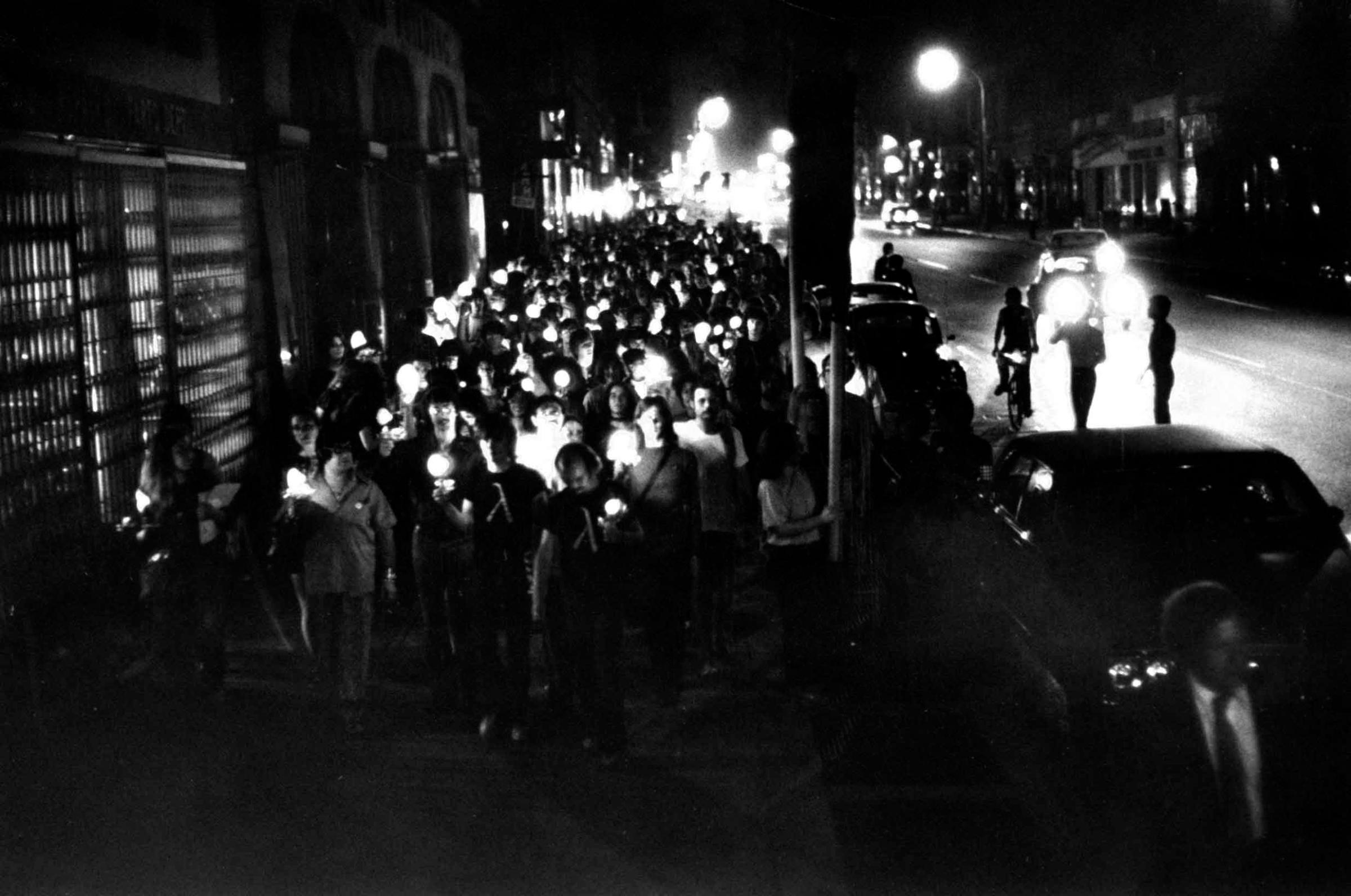
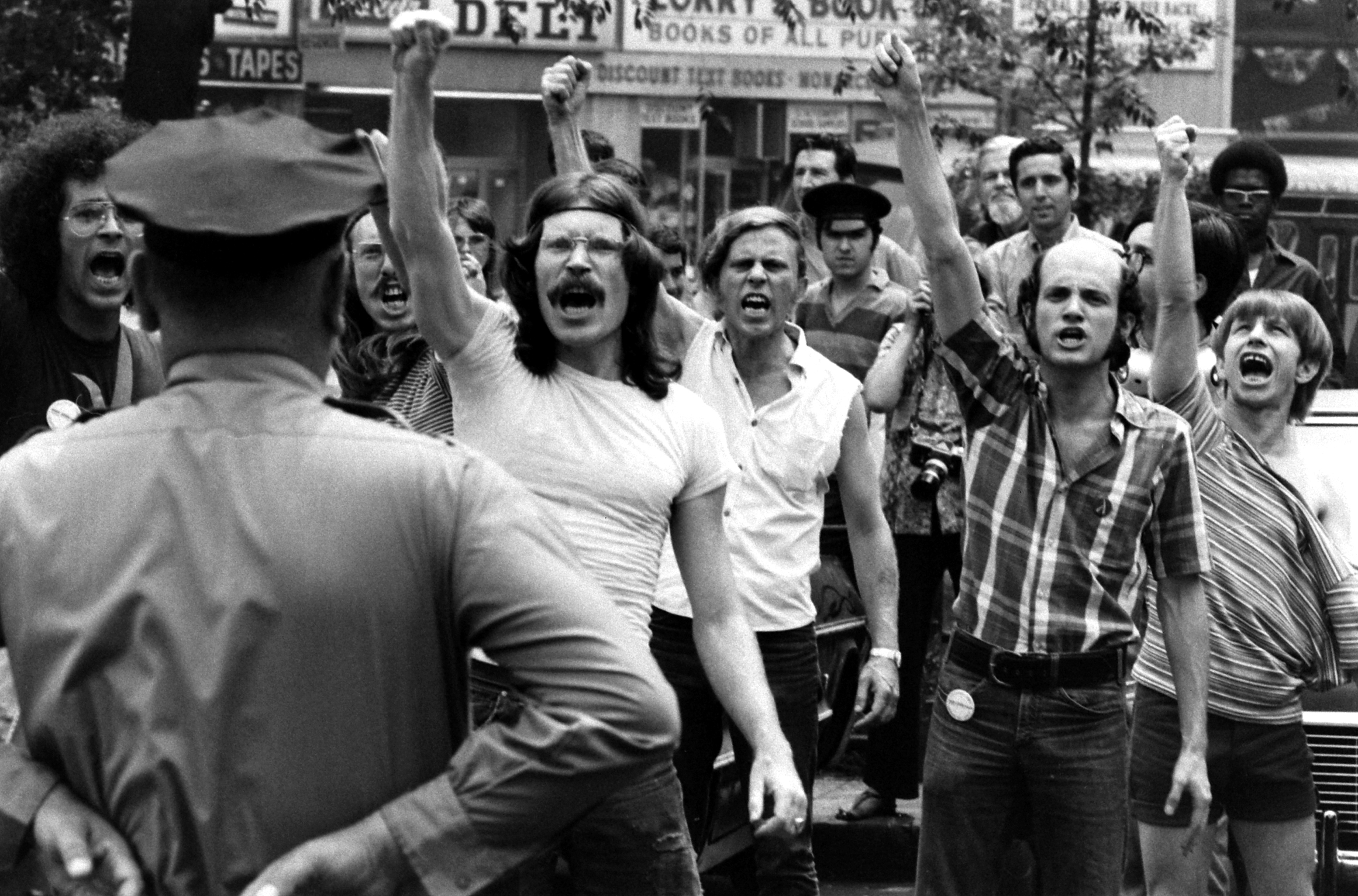
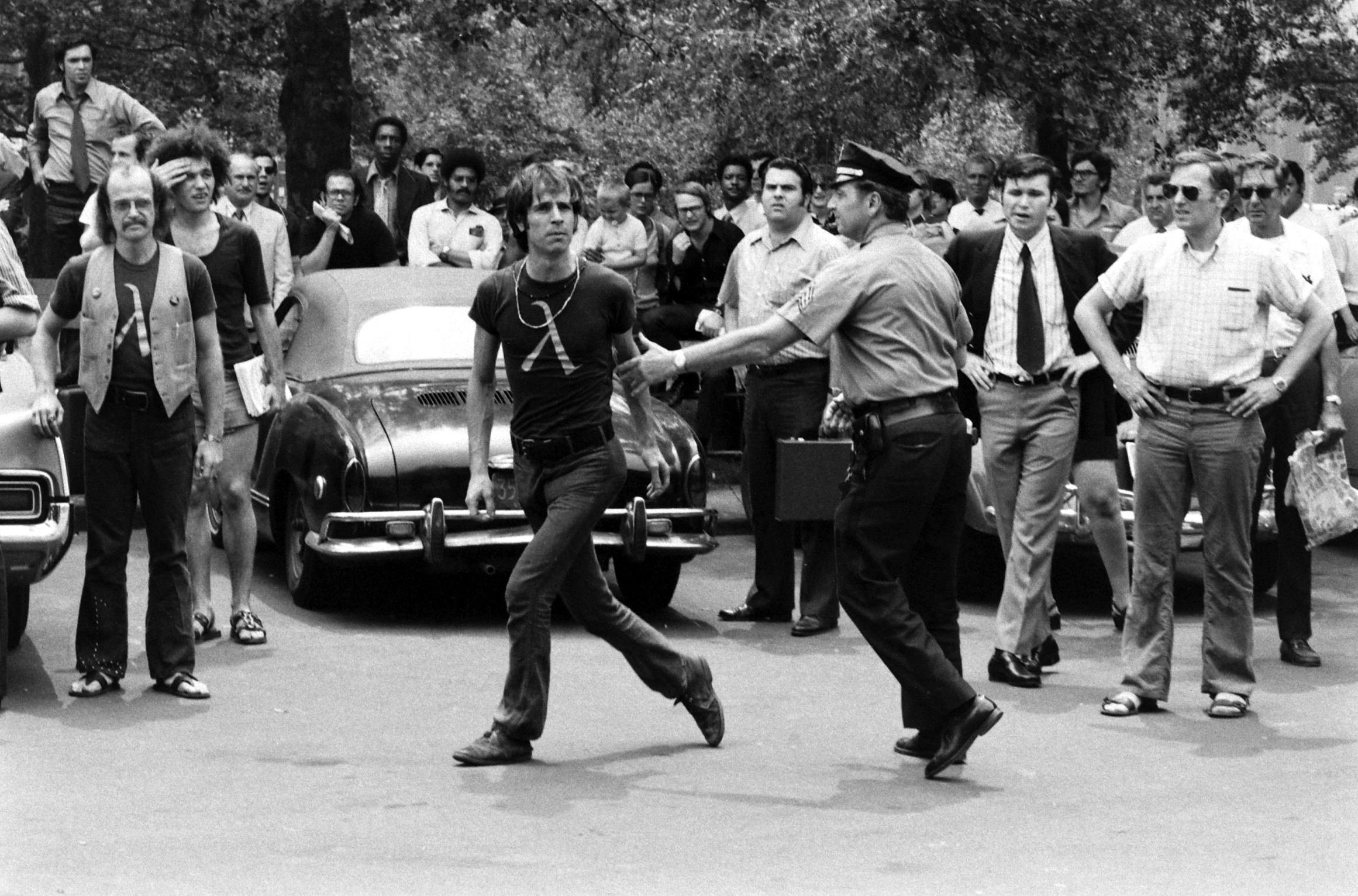

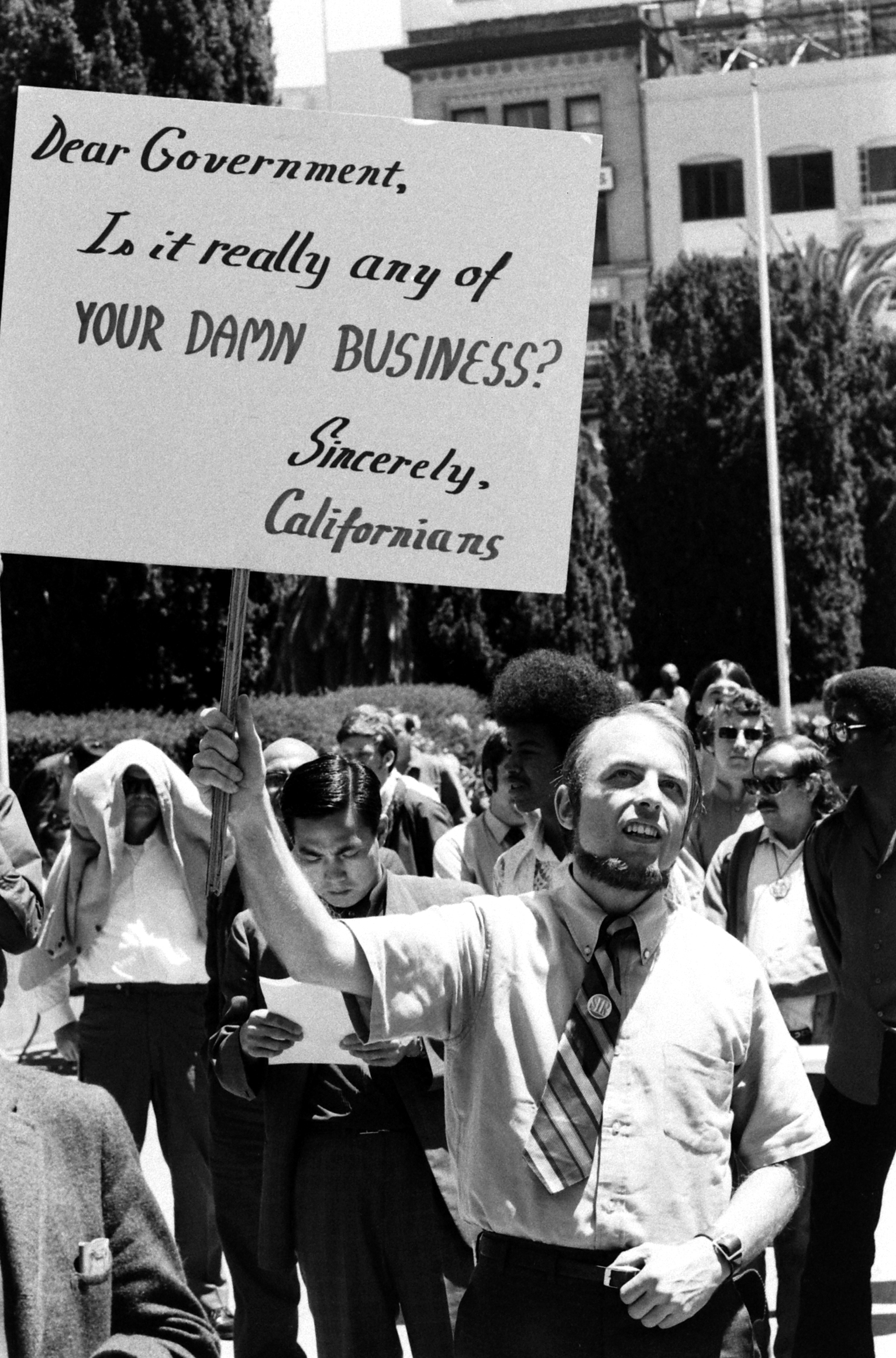
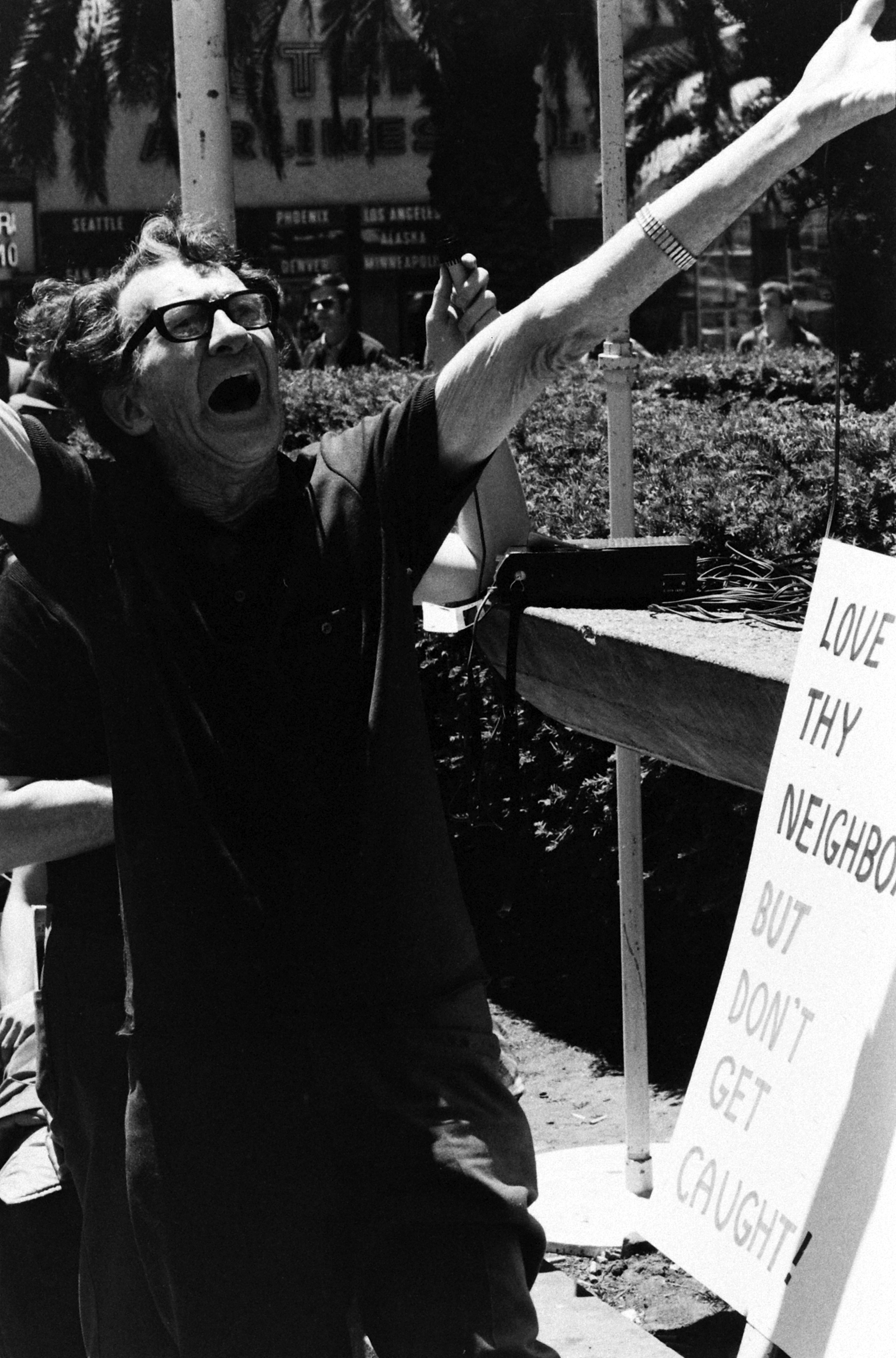
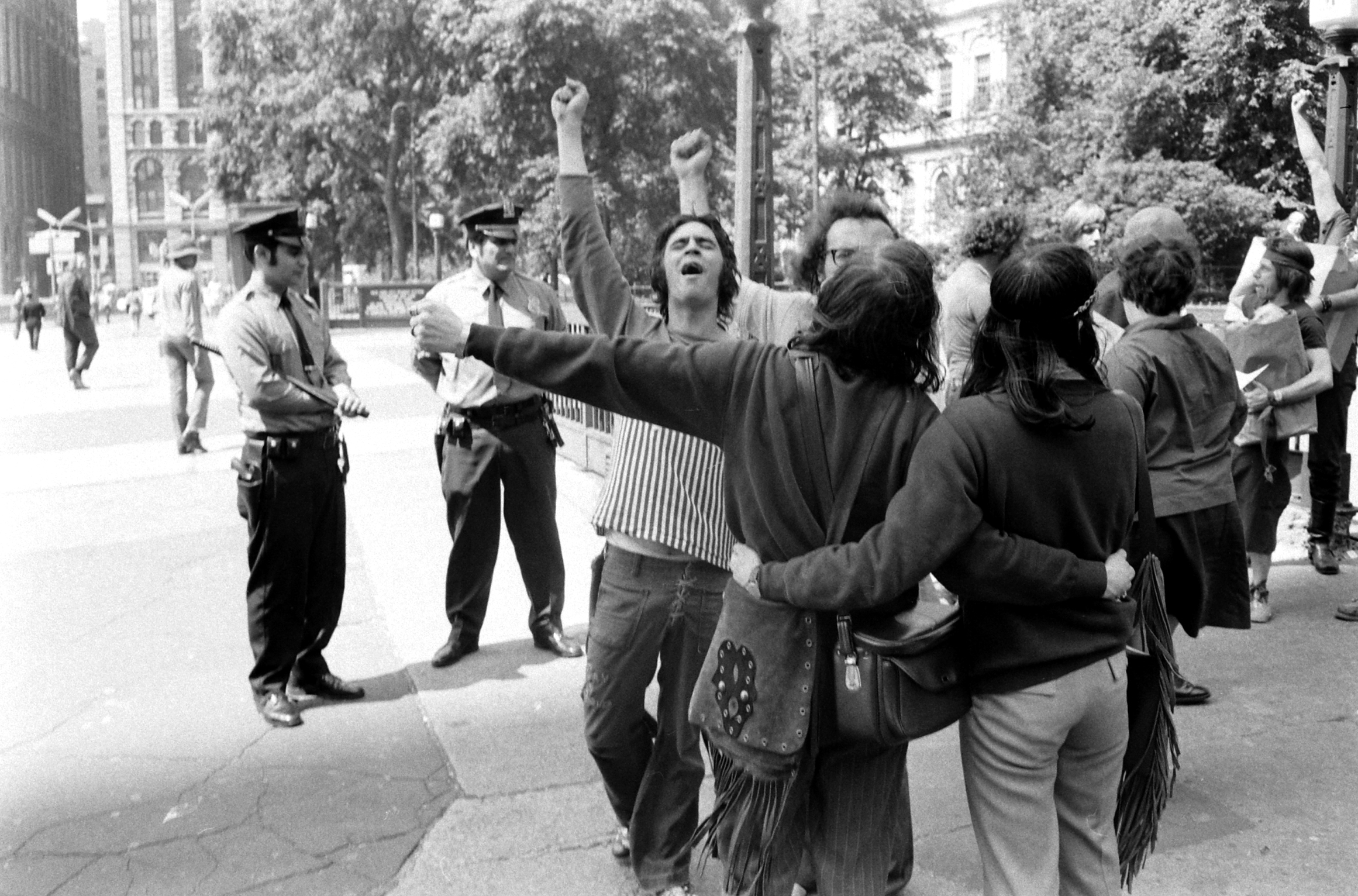

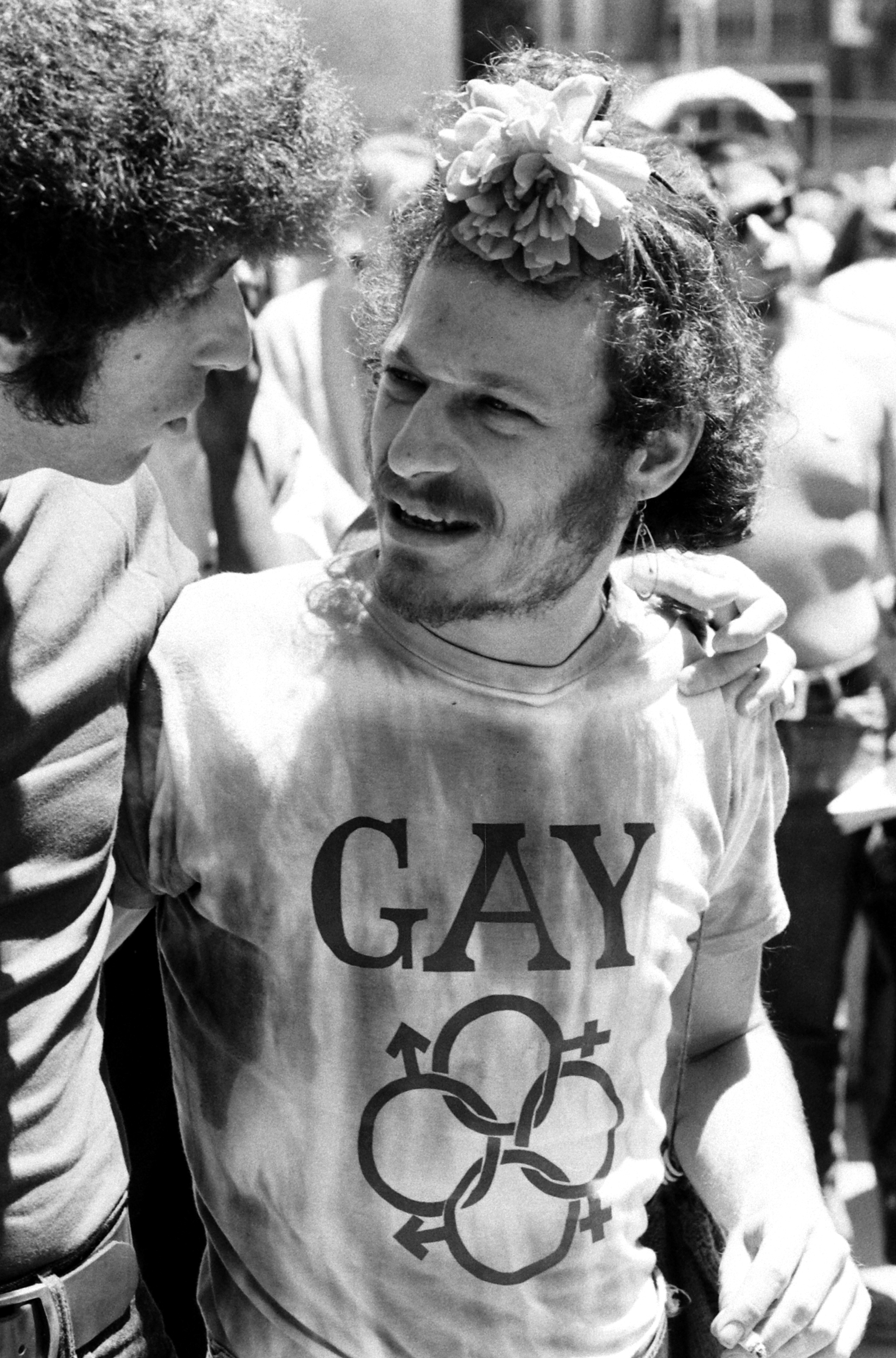
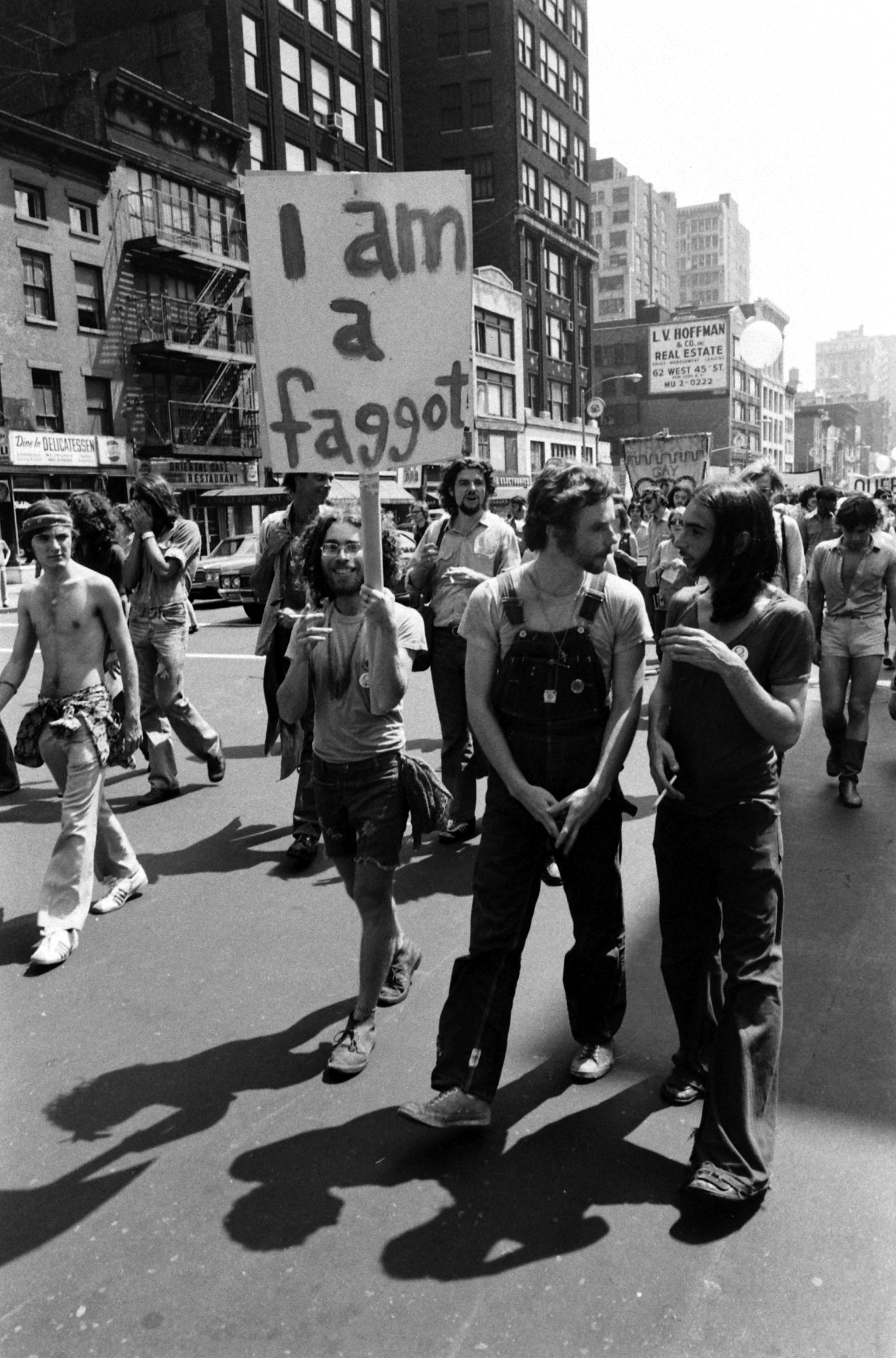
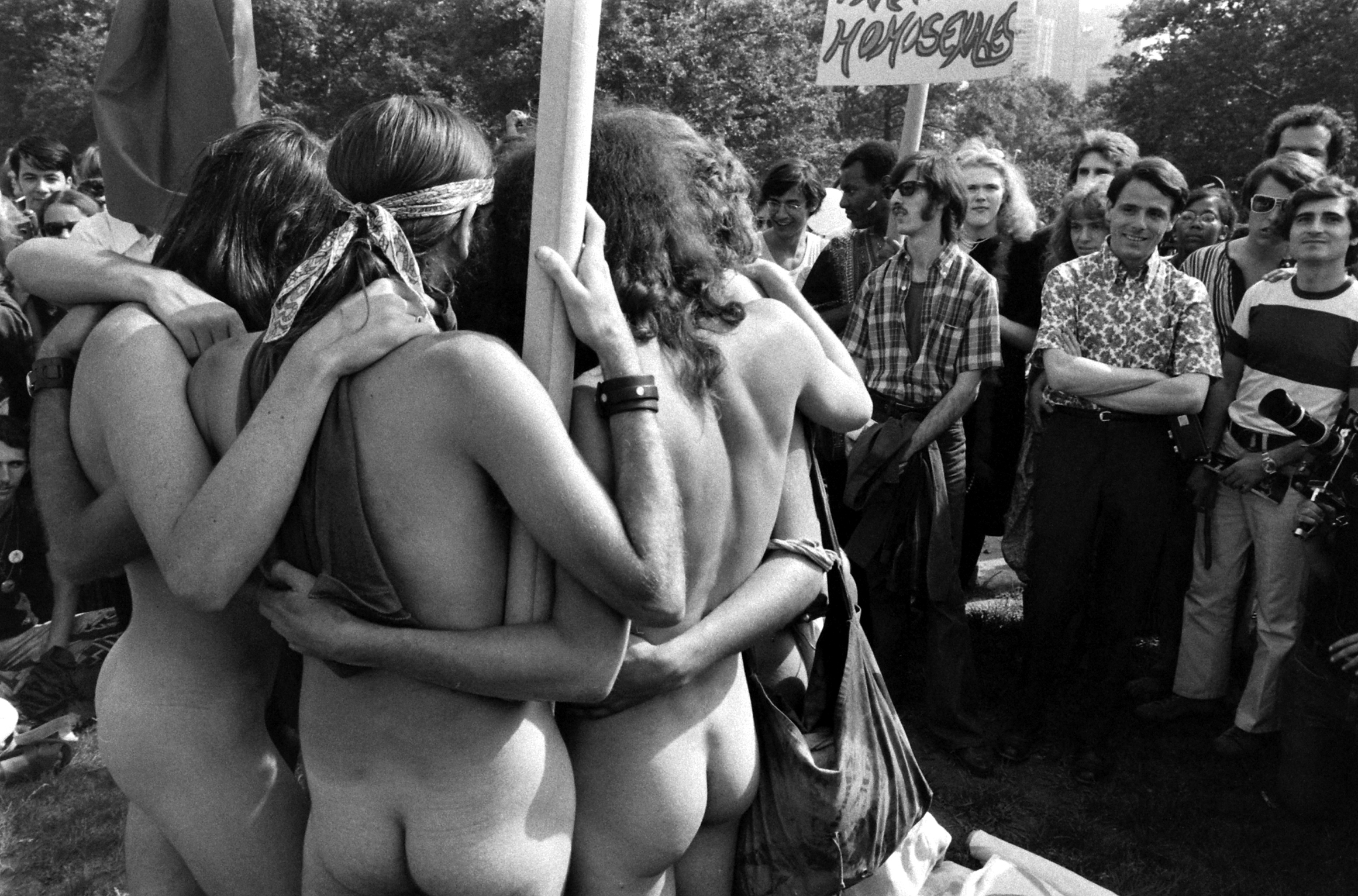


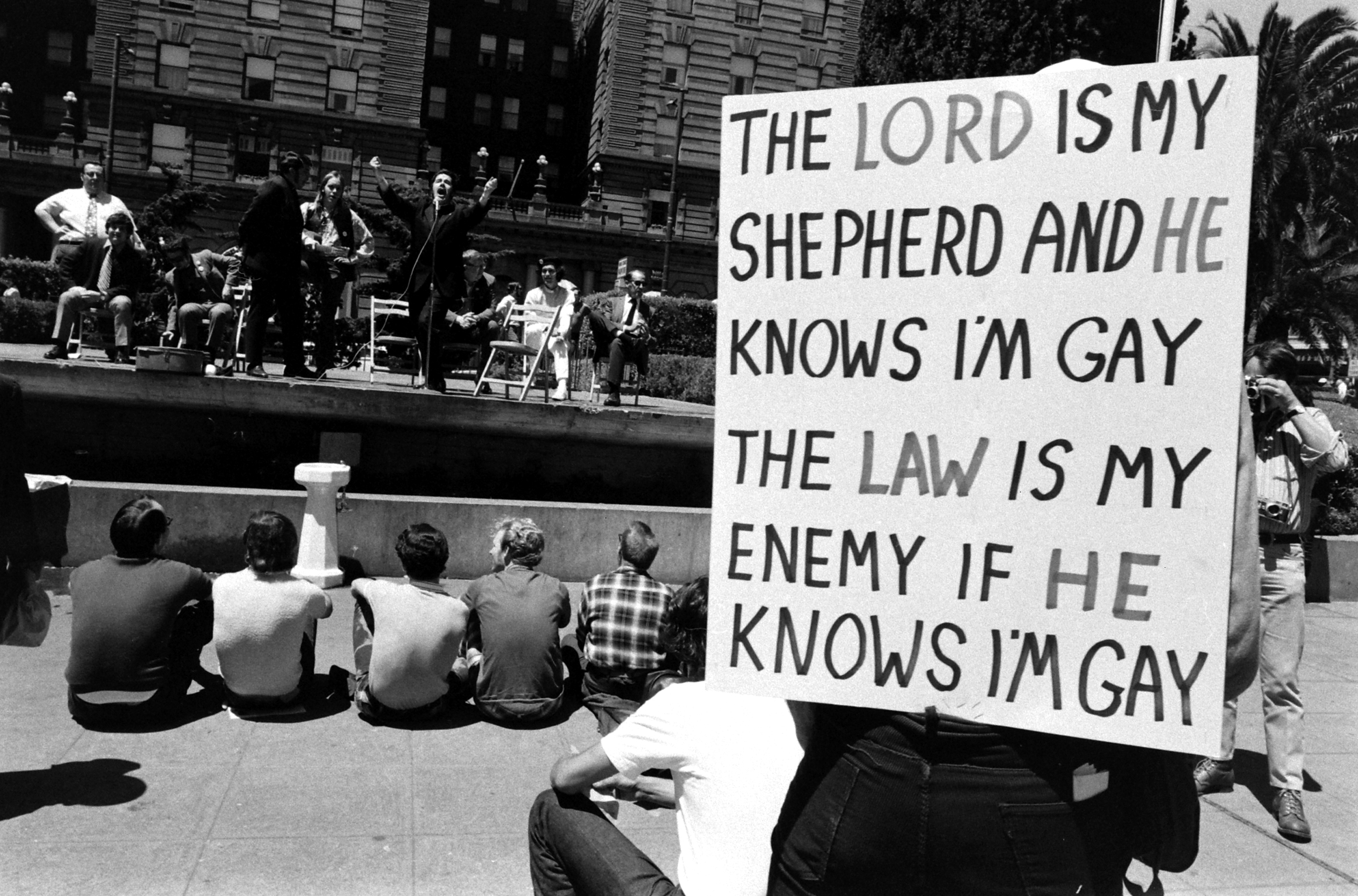
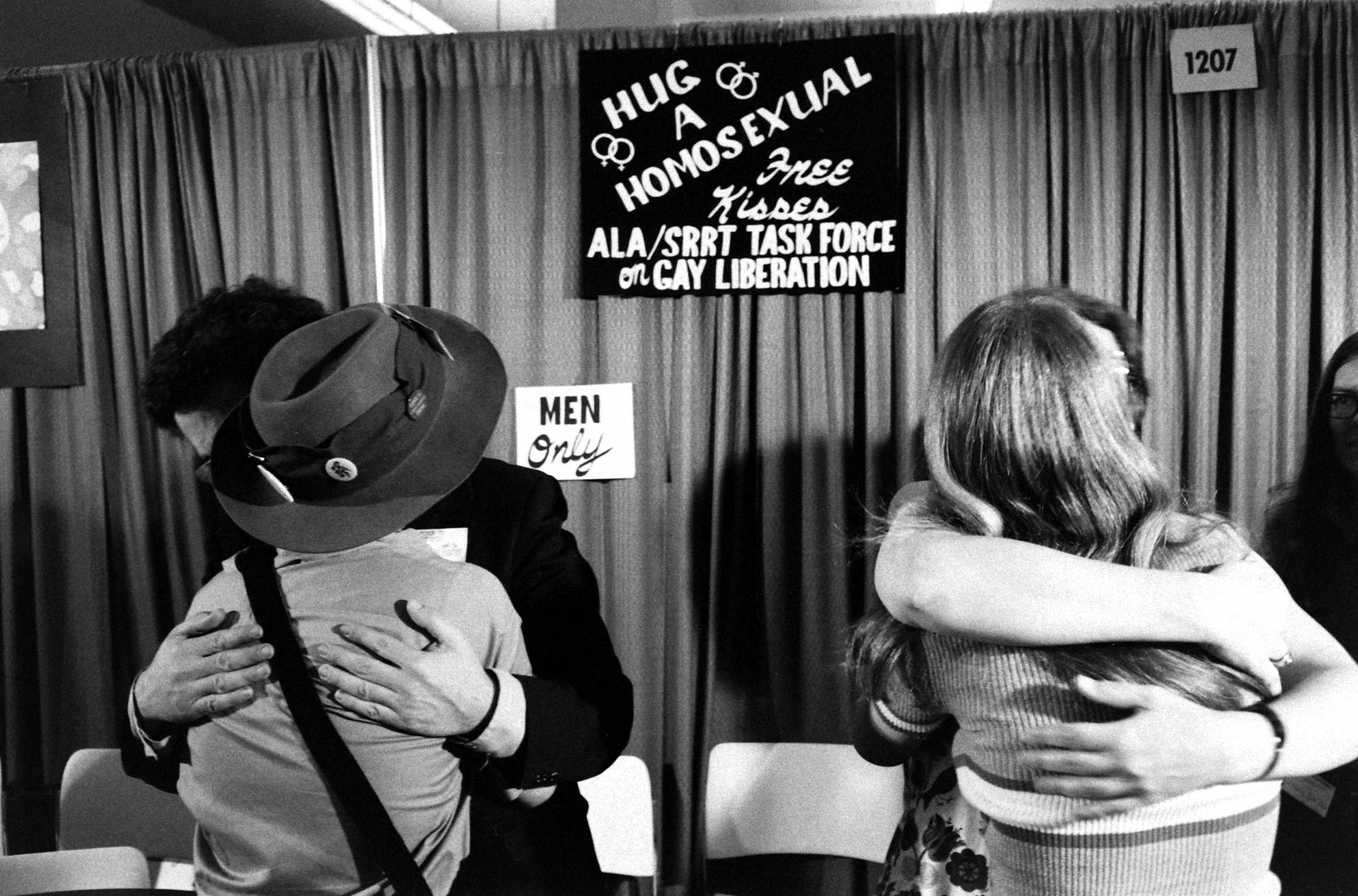
Do religious groups support Indiana’s law?
Most have been somewhat silent surrounding Gov. Pence’s decision, the Indianapolis Star reported Friday, after surveying several local institutions. Indiana Right to Life CEO Mike Fichter, for example, said the group supports for the law for its “to provide greater protections for pro-life businesses and ministries in Indiana.”
Still, others groups including the Indianapolis-based Christian Church and a bishop from the Indiana area United Methodist Church said they were hesitant to support the law, according to the Star. “Our perspective is that hate and bigotry wrapped in religious freedom is still hate and bigotry,” said Todd Adam, associate general minister of the Christian Church.
Is this the first state law of its kind?
No. Indiana—while the first to enact such as a law this year—is actually the 20th U.S. state to pass such a law, the Associated Press reported this weekend. And others have similar legislation on the books, including North Carolina, Georgia and Arkansas. The latter bill has already passed the State Senate and State House of Representatives, and received a nod of approval by Republican Gov. Asa Hutchinson this weekend, who said he plans to sign it.
These laws are modeled on the federal Religious Freedom Restoration Act (RFRA), which passed the House and Senate in 1993 before being signed by former Democratic president Bill Clinton. At that time, the RFRA was not understood to legalize discrimination against gay Americans—in fact, its origins lay in Oregon v. Smith (1990), a case regarding two Native Americans being fired after taking part in a religious ceremony. As a result, the RFRA established a balancing test to determine whether there was indeed a breach of religious liberty. Its definition of “substantially burden” is the same one used in Indiana’s law.
If a federal religious freedom law already exists, why do states need their own versions?
In 1997, the Supreme Court ruled that the federal act was not applicable to state and local laws. Since then, states including Texas, Florida, Connecticut and Illinois have passed their own versions of the religious freedom restoration act.
But in passing these laws, most states did not have the issue of gay rights on their minds, UVA law professor Douglas Laycock told the Washington Post last year. “There were cases about Amish buggies, hunting moose for native Alaskan funeral rituals, an attempt to take a church building by eminent domain, landmark laws that prohibited churches from modifying their buildings—all sorts of diverse conflicts between religious practice and pervasive regulation.”
More recently, though, some states have introduced bills explicitly tackling the topic of marriage. In Oklahoma, for example, a proposed bill states that businesses aren’t required “to participate in any marriage ceremony, celebration, or other related activity or to provide items or services for such purposes against the person’s religious beliefs.”
What motivated the Indiana state legislature to pass the bill?
It was partly inspired by the landmark Supreme Court case Burwell v. Hobby Lobby (2014), which used an interpretation of the federal RFRA to rule that businesses may refuse to pay for employee contraceptive coverage required by President Obama’s Affordable Care Act on religious grounds.
Republican Indiana State Sen. Scott Schneider, who introduced Indiana’s “religious objections” bill last December, said in a statement that the Hobby Lobby case motivated the bill: “In reviewing that court ruling, it became clear that Indiana’s laws were not reflective of federal law. This bill, which I plan to author this session, would match federal law in the state of Indiana.”
The legal case for the bill was also set out in an Indianapolis Star article by Indiana University law professor Daniel Conkle. In it, he wrote:
The bill would establish a general legal standard, the “compelling interest” test, for evaluating laws and governmental practices that impose substantial burdens on the exercise of religion.
Is it possible for the bill to be reversed?
Gov. Pence isn’t interested: “We’re not going to change this law,” Pence said on Sunday. However, the Indiana governor added that he welcomes a clarification bill, which is expected arrive later this week: “If the General Assembly … sends me a bill that adds a section that reiterates and amplifies and clarifies what the law really is and what it has been for the last 20 years, then I’m open to that.”
While Gov. Pence did not disclose what specific clarifications would be included, he told the Star that the legal protection of gay and lesbian Indiana residents is “not on my agenda.”
Read next: Democrats Caught Up in Controversial Indiana Religious-Freedom Law
More Must-Reads From TIME
- The 100 Most Influential People of 2024
- Coco Gauff Is Playing for Herself Now
- Scenes From Pro-Palestinian Encampments Across U.S. Universities
- 6 Compliments That Land Every Time
- If You're Dating Right Now , You're Brave: Column
- The AI That Could Heal a Divided Internet
- Fallout Is a Brilliant Model for the Future of Video Game Adaptations
- Want Weekly Recs on What to Watch, Read, and More? Sign Up for Worth Your Time
Contact us at letters@time.com